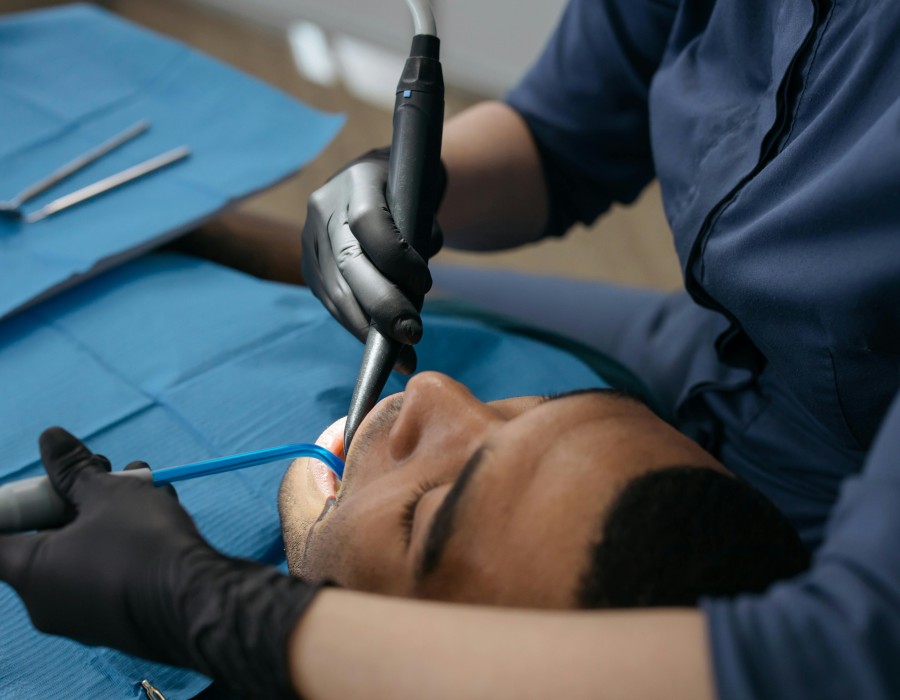When faced with a dental emergency, the stakes are high. The sudden onset of pain, injury from an accident, or complications from a dental procedure can create an urgent need for professional help. This urgency often leads individuals to seek immediate care from an emergency dentist, but knowing how to find the right one can make all the difference in your experience and treatment outcome. This article will explore essential factors to consider when searching for an emergency dentist, ensuring you are well-prepared to address your dental crisis effectively.
Understanding the Nature of Dental Emergencies
Before locating an emergency dentist, it is vital to understand what constitutes a dental emergency. Dental emergencies are not merely about discomfort; they can involve severe pain, bleeding, or trauma that requires immediate attention. Common examples include knocked-out teeth, fractured or cracked teeth, abscesses, and severe toothaches that cannot be managed with over-the-counter medications. Understanding the nature of your dental emergency will help you communicate effectively with the dentist and ensure you receive the appropriate care as quickly as possible.
Assessing Your Immediate Needs
When you need an emergency dentist, the first step is to assess your immediate needs. Are you experiencing severe pain that disrupts your daily activities? Have you sustained an injury that impacts your ability to eat or speak? Identifying the severity of your situation can guide you in making informed decisions about seeking care. For instance, if you have a knocked-out tooth, time is of the essence, as re-implantation is most successful when done within an hour of the incident. Understanding the urgency of your situation will help you prioritise finding a dentist who can provide the necessary treatment without delay.
Researching Emergency Dentists in Your Area
Finding an emergency dentist requires a bit of research, but the effort is well worth it when it comes to your oral health. Start by searching online for emergency dentists in your area. Many dental practices have websites listing their services, including emergency care options. Look for reviews and ratings from other patients, as these can provide valuable insight into the quality of care. Websites like Google Reviews, Yelp, and even social media can be instrumental in gauging the reputation of a dental practice.
Additionally, consider contacting friends, family, or co-workers for recommendations. Personal experiences can lead you to trustworthy professionals who have successfully managed dental emergencies in the past. Remember that not every dental office advertises their emergency services explicitly, so don’t hesitate to call and inquire about availability, hours of operation, and the types of emergencies they handle.
Evaluating the Dentist's Qualifications and Services
Once you have identified potential emergency dentists, evaluating their qualifications and the services they offer is essential. Look for board-certified dentists with specialised training in emergency dental care. This specialisation can significantly affect your care level, especially in complex cases. Additionally, consider whether the dentist provides a wide range of services, such as extractions, root canals, or therapeutic procedures. A versatile dentist can address multiple issues that may arise during your visit, saving you time and the hassle of finding another provider.
It is also beneficial to verify the office's hours of operation. Some dental practices offer after-hours or weekend services, which can be crucial if your emergency occurs outside regular business hours. Knowing you have access to care when needed most can provide immense peace of mind.
Understanding the Costs Involved
Dental emergencies can be financially daunting, especially if you are unprepared for unexpected costs. Before committing to an emergency dental visit, it is wise to inquire about the costs involved. Many dental offices provide estimates for standard procedures, but emergency care can vary in price depending on the complexity of the treatment required. Be sure to ask about payment options and whether they accept insurance. Some practices may offer payment plans or discounts for cash payments if you are uninsured. Understanding the financial aspect of your emergency dental care will help you make informed decisions without the stress of unexpected expenses.
Preparing for Your Visit
When you have chosen an emergency dentist, preparation for your visit can enhance your experience and ensure you receive the best possible care. Gather relevant medical history, including allergies, current medications, and previous dental treatments. This information is critical for the dentist to determine the best course of action and to avoid potential complications. If you have a specific concern or question, write it down to address it during your appointment.
Additionally, if your emergency involves physical trauma, try to keep any displaced teeth or tissue in a safe condition for re-implantation. Place a knocked-out tooth in a glass of milk or saline solution, which can help preserve its viability until you reach the dentist's office.
Post-Treatment Care and Follow-Up
After receiving emergency dental treatment, following your dentist's post-treatment care instructions is crucial to promote healing and prevent complications. This may include recommendations on pain management, dietary restrictions, and follow-up appointments. Understanding the aftercare process can help you avoid further emergencies and ensure your dental health is restored effectively.
Furthermore, if your emergency was due to an underlying issue, such as untreated decay or gum disease, be proactive about scheduling follow-up appointments for comprehensive care. Regular check-ups and good oral hygiene practices can prevent future emergencies and contribute to long-term dental health.
In summary, finding an emergency dentist is an essential skill that can significantly impact the outcome of your dental crisis. By understanding the nature of dental emergencies, assessing your immediate needs, researching potential dentists, evaluating their qualifications, and preparing for your visit, you can confidently navigate this challenging situation. Always remember that timely action and informed decisions are crucial to maintaining oral health and well-being.





Comments